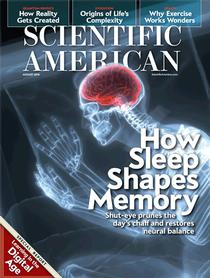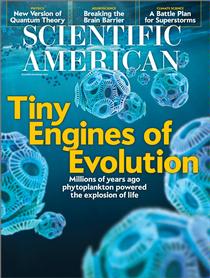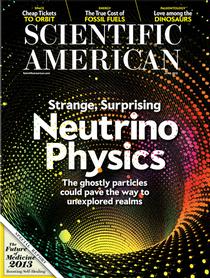August 1, 2013
Why terror doesn’t work
Because terrorism educes such strong emotions, it has led to at least five myths. The first began in September 2001, when President George W. Bush announced that “we will rid the world of the evildoers” and that they hate us for “our freedoms.” This sentiment embodies what Florida State University psychologist Roy Baumeister calls “the myth of pure evil,” which holds that perpetrators commit pointless violence for no rational reason.
This idea is busted through the scientific study of aggression, of which psychologists have identified four types that are employed toward a purposeful end (from the perpetrators’ perspective): instrumental violence, such as plunder, conquest and the elimination of rivals; revenge, such as vendettas against adversaries or self-help justice; dominance and recognition, such as competition for status and women, particularly among young males; and ideology, such as religious beliefs or utopian creeds. Terrorists are motivated by a mixture of all four. (continue reading…)
July 1, 2013
Arguments of divine intervention—alien or otherwise—start with ignorance
According to the popular series Ancient Aliens, on H2 (a spinoff of the History channel), extraterrestrial intelligences visited Earth in the distant past, as evidenced by numerous archaeological artifacts whose scientific explanations prove unsatisfactory for alien enthusiasts. The series is the latest in a genre launched in 1968 by Erich von Däniken, whose book Chariots of the Gods? became an international best seller. It spawned several sequels, including Gods from Outer Space, The Gods Were Astronauts and, just in time for the December 21, 2012, doomsday palooza, Twilight of the Gods: The Mayan Calendar and the Return of the Extraterrestrials (the ones who failed to materialize).
Ancient aliens theory is grounded in a logical fallacy called argumentum ad ignorantiam, or “argument from ignorance.” The illogical reasoning goes like this: if there is no satisfactory terrestrial explanation for, say, the Nazca lines of Peru, the Easter Island statues or the Egyptian pyramids, then the theory that they were built by aliens from outer space must be true. (continue reading…)
June 1, 2013
When neuroscience meets criminology
IN HIS BEST-SELLING ESSAY entitled “Guns,” Stephen King contrasts a mass killer’s school yearbook picture, “in which the guy pretty much looks like anybody,” and the police mug shot of someone who looks “like your worst nightmare.”
Do criminals look different from noncriminals? Are there patterns that science can discover to enable society to identify potential felons before they break the law or to rehabilitate them after? University of Pennsylvania criminologist and psychiatrist Adrian Raine attempts to answer these and related questions his book The Anatomy of Violence: The Biological Roots of Crime (Pantheon, 2013). Raine details how evolutionary psychology and neuroscience are converging in this effort. For example, he contrasts two cases that show new ways to look at the origins of wrongdoing. First is the example of “Mr. Oft,” a perfectly normal man turned into a pedophile by a massive tumor at the base of his orbitofrontal cortex; when it was resected, he returned to normalcy. Second, we learn of a murderer-rapist named Donta Page, whose childhood was so horrifically bad—he was impoverished, malnourished, fatherless, abused, raped and beaten on the head to the point of being hospitalized several times—that his brain scan “showed clear evidence of reduced functioning in the medial and orbital regions of the prefrontal cortex.” (continue reading…)
May 1, 2013
How data can help clarify the gun-control debate
According to the Centers for Disease Control and Prevention, 31,672 people died by guns in 2010 (the most recent year for which U.S. figures are available), a staggering number that is orders of magnitude higher than that of comparable Western democracies. What can we do about it? National Rifle Association executive vice president Wayne LaPierre believes he knows: “The only thing that stops a bad guy with a gun is a good guy with a gun.” If La Pierre means professionally trained police and military who routinely practice shooting at ranges, this observation would at least be partially true. If he means armed private citizens with little to no training, he could not be more wrong.
Consider a 1998 study in the Journal of Trauma and Acute Care Surgery that found that “every time a gun in the home was used in a self-defense or legally justifiable shooting, there were four unintentional shootings, seven criminal assaults or homicides, and 11 attempted or completed suicides.” Pistol owners’ fantasy of blowing away home-invading bad guys or street toughs holding up liquor stores is a myth debunked by the data showing that a gun is 22 times more likely to be used in a criminal assault, an accidental death or injury, a suicide attempt or a homicide than it is for selfdefense. I harbored this belief for the 20 years I owned a Ruger .357 Magnum with hollow-point bullets designed to shred the body of anyone who dared to break into my home, but when I learned about these statistics, I got rid of the gun. (continue reading…)
April 1, 2013
Did a neurosurgeon go to heaven?
In Eben Alexander’s best-selling book Proof of Heaven: A Neurosurgeon’s Journey into the Afterlife (Simon & Schuster), he recounts his near-death experience (NDE) during a meningitis-induced coma. When I first read that Alexander’s heaven includes “a beautiful girl with high cheekbones and deep blue eyes” who offered him unconditional love, I thought, “Yeah, sure, dude. I’ve had that fantasy, too.” Yet when I met him on the set of Larry King’s new streaming-live talk show on Hulu, I realized that he genuinely believes he went to heaven. Did he?
Not likely. First, Alexander claims that his “cortex was completely shut down” and that his “near-death experience … took place not while [his] cortex was malfunctioning, but while it was simply off.” In King’s green room, I asked him how, if his brain was really nonfunctional, he could have any memory of these experiences, given that memories are a product of neural activity? He responded that he believes the mind can exist separately from the brain. How, where, I inquired? That we don’t yet know, he rejoined. The fact that mind and consciousness are not fully explained by natural forces, however, is not proof of the supernatural. In any case, there is a reason they are called near-death experiences: the people who have them are not actually dead. (continue reading…)






